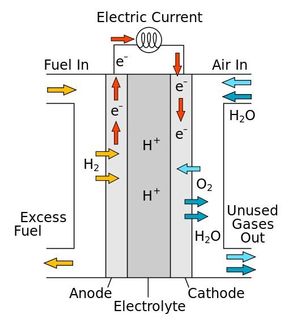Cobalt porphyrin catalysts could improve hydrogen fuel cells
Advertisement
Only a single metal centre is needed to catalyse the reduction of oxygen to produce water, according to researchers in the US.
Daniel Nocera and colleagues at Massachusetts Institute of Technology have shown for the first time that single centre cobalt porphyrins anchored on carbon nanotubes and containing a proton transfer group efficiently catalyse the reduction of oxygen. It could open the door to more efficient fuel cells in the future.
Reducing oxygen to water is a key reaction involved in releasing stored energy from hydrogen fuel cells which has previously required expensive bimetallic catalysts. Nocera’s porphyrins are more efficient than existing cobalt catalysts and are made easily in two steps, so could invigorate the design of future fuel cells using cobalt over its more costly metal cousins.
Original publication: Robert McGuire Jr., Dilek K Douglas, Thomas S Teets, Jin Suntivich, Yang Shao-Horn and Daniel G Nocera, Chem. Sci., 2010
Topics
Organizations
Other news from the department science

Get the chemical industry in your inbox
By submitting this form you agree that LUMITOS AG will send you the newsletter(s) selected above by email. Your data will not be passed on to third parties. Your data will be stored and processed in accordance with our data protection regulations. LUMITOS may contact you by email for the purpose of advertising or market and opinion surveys. You can revoke your consent at any time without giving reasons to LUMITOS AG, Ernst-Augustin-Str. 2, 12489 Berlin, Germany or by e-mail at revoke@lumitos.com with effect for the future. In addition, each email contains a link to unsubscribe from the corresponding newsletter.


























































